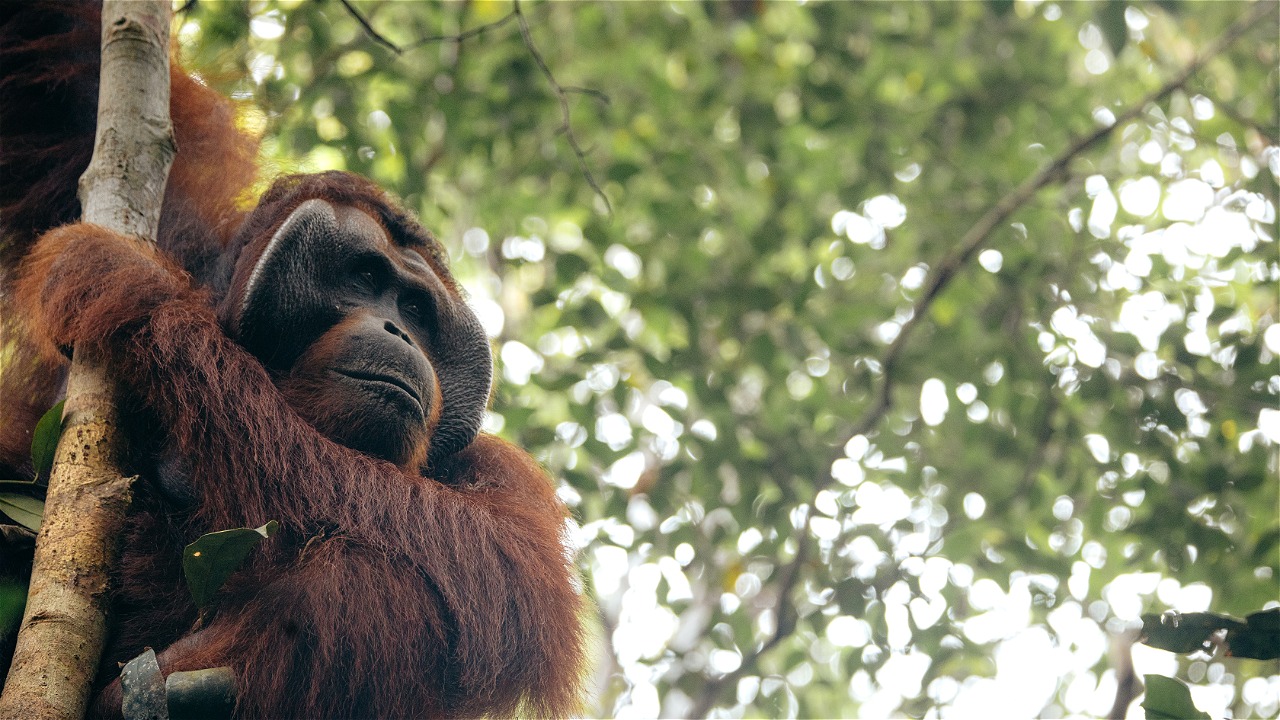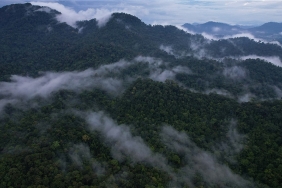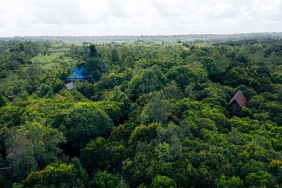MINIMIZATION OF HUMAN-ORANGUTAN CONFLICT
PONTIANAK - The West Kalimantan Natural Resources Conservation Center is collaborating with a number of partners to jointly reduce the rate of conflict between humans and orangutans. The triggers of the conflict are the conversion of forest areas into oil palm plantations and industrial timber estates and the overlapping of people's land with orangutan habitat.
The West Kalimantan BKSDA recorded that 439 wildlife involving 28 species, including orangutans, were rescued throughout 2017. These conflicts increase the extinction rate of these arboreal animals every year. The triggers of the conflict are what the agency aims to mitigate through the Institutional Capacity Building and Human Resources Training with the thematic of Minimizing Human and Orangutan Conflicts in the Sungai Purun Forest Landscape of Kubu Raya and Mempawah Regencies, 2-4 April 2018.
Through this training, relevant parties such as WWF-Indonesia, Yayasan Titian Lestari and the West Kalimantan Orangutan Conservation Forum (FOKAB), supported by TFCA Kalimantan and the West Kalimantan BKSDA, collaborated to make mitigation efforts to reduce conflicts between humans and wildlife such as orangutans.
The overlapping of orangutan habitat with community land and the conversion of forest areas as orangutan habitat into plantation land and Industrial Plantation Forests (HTI) have resulted in orangutans often being hunted and killed on the grounds that they are considered pests destroying garden crops. Public ignorance of mitigation efforts often leads to the shortcut of killing orangutans.
"This is one of our efforts to reduce conflicts between humans and orangutans. Before a conflict occurs, anticipatory steps should be taken. And this must be accompanied by the willingness of the humans themselves, so that ecologically the population of the species is maintained and socially the lives of the people are also maintained," said Sadtata Noor Adirahmanta, Head of the West Kalimantan KSDA Center.
According to him, one of the main causes of the decline in the number of wildlife populations in West Kalimantan, especially orangutan species, is exploitation through hunting for the purpose of trade, maintenance, and consumption. Another cause is habitat fragmentation due to deforestation caused by forest and land fires, illegal logging, and conversion of forests into cultivation areas.
In Indonesia, in the last ten years, it has become a national issue that is often raised in various media and discussion forums. The results of media monitoring, in the last seven years (2010-2017) there were seven incidents of orangutans entering villages in Rasau Village, Sungai Purun Village, Peniraman Village, and Wajok Village, Mempawah Regency.
WWF-Indonesia West Kalimantan Program Manager Albertus Tjiu said that humans are actually still closely related to the orangutan species.
"If we together protect the nature where this species lives, of course it will also have a good impact on our lives. The habitat is good, the food must be sufficient, so that it does not interfere with areas or areas that are the source of people's lives, such as gardens. This is what we need to understand together, agree on and carry out the commitment, "he said.
This training is aimed at increasing institutional capacity and human resources to minimize the potential for human-orangutan conflict in the Sungai Purun Forest Landscape and its surroundings. It can also provide understanding and uniformity of survey methodology to government agencies, private parties, and environmental conservation organizations (NGOs) as training participants, as well as to provide an understanding of post-rescue handling of orangutans.
This activity is expected to bind the commitment of the parties in mitigating conflicts between humans and orangutans. Parties can also proactively report cases or findings of conflict through the call center and submit reports through the android application.
Director of Titian Lestari Foundation, Sulhani, said that the participation of parties in proactively monitoring the circulation of orangutans such as trade, maintenance, or encounters, especially from the private sector and the community is highly expected.
"Institutional capacity, both government, private and environmental conservation organizations, is certainly very helpful for the protection of orangutan species as well as efforts to mitigate conflicts with the animals themselves," he said.
Currently, the West Kalimantan BKSDA has made several efforts to mitigate conflicts, including initiating call numbers that can be contacted 24 hours (call center) and providing capacity building for field task implementers.
For more information, please contact:
Call Center BKSDA (08115776767)
Paramitha Rosandi (Publications & Wildlife Rescue Unit)
West Kalimantan BKSDA
Jl. Ahmad Yani No. 121 Pontianak
HP: 081253453555
Dewi Puspita Sari (Species Officer)
WWF-Indonesia West Kalimantan Program
Jl. Karna Sosial Gg. Wonoyoso II No. 3 - Pontianak
HP: 082148486784 | Email: dpuspita@wwf.id





